The Higher Education Estates Management Report 2025 (EMR) is now available.
As property operational costs have risen sharply in recent years, with huge rises in energy accompanied by rises in staffing costs, insurance costs, and similar rises in many more categories, universities are sitting on simply extraordinary amounts of space that is not used in anything like an economically viable way. It is for AUDE and AUDE members to help steer our universities to a stronger position.
If you have any questions regarding the EMR contact cheryl@aude.ac.uk.
The launch of a new strategy for the association is a chance to look at the work we have been doing and to shake it up fresh for the coming period through to 2031. The strategy has been produced with input from members throughout, and via an extensive programme of interaction with stakeholders over ten months, and we are pleased to share it with you today confident in our belief that it is a realistic response to those many preparatory conversations. In support of this we have also produced a statement ‘AUDE: Who we are’ which backs up the strategy by reminding us not only what we want to do, but the way in which we want to do it
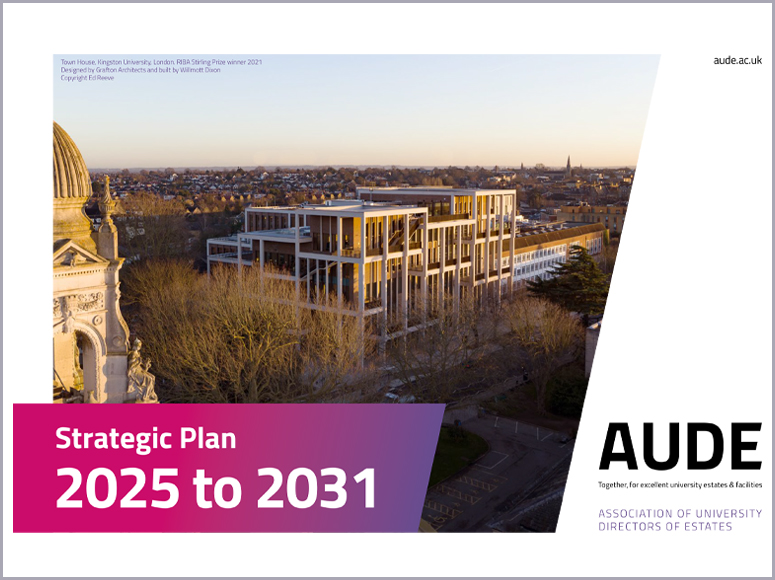
Self-evidently universities are going at different speeds in their adoption of digital technologies to support estates decision-making. We can all only travel at the speed resources allow, and this is understood. But as we look ahead to an estates and facilities future that is ever more enabled by digital technologies, including AI, we now have colleagues that are a step or two further down the road that we can learn from.

We are very grateful to all that have contributed to this new publication. The theme is a large one, and it gets ever more important. The headline of our climate position is relatively simple to understand. The UK should expect warmer but wetter winters, and warmer but drier summers - a cycle of floods and droughts. The Paris Climate Agreement of 2015 asked governments to commit to actions which would keep temperature rise to 1.5 degrees Celsius above pre-industrial levels. The current trajectory is a rise of 2.7 degrees, with worst case scenarios of around 4 degrees. This isn’t theoretical, it is happening now.
Download the full guide here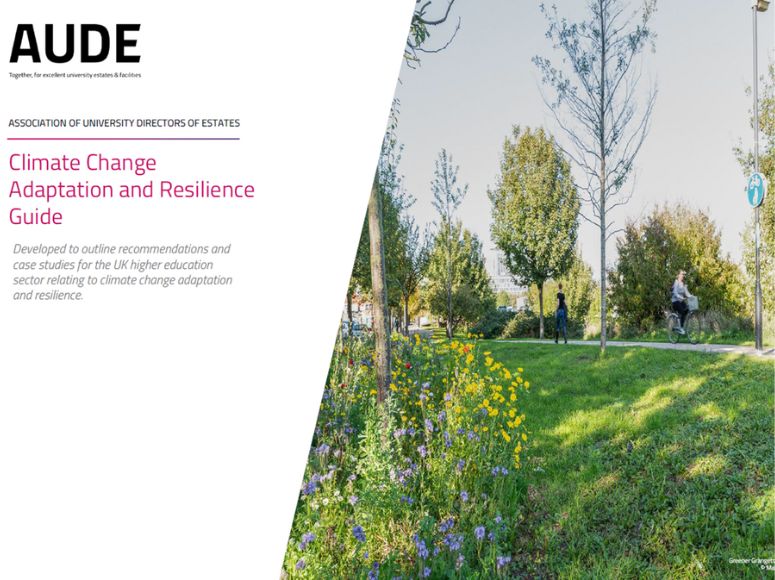
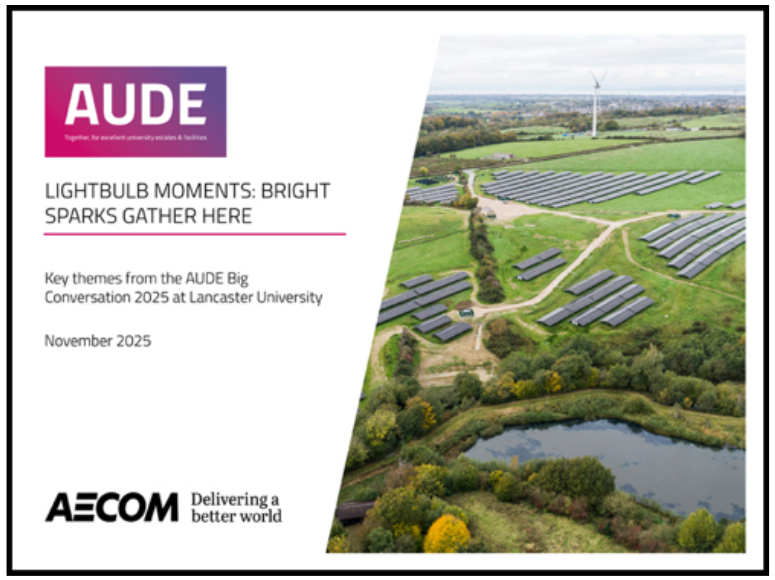
In partnership with AECOM, we have produced a thought leadership report that captures the key reflections from Big Conversation 2025.
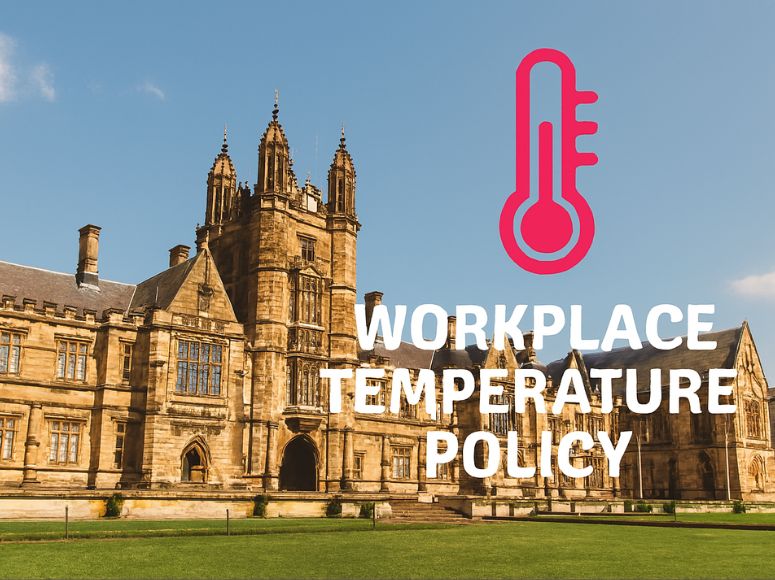
The latest template policy, created by AUDE's Strategic Facilities Management Group.
This policy is designed to ensure that the University complies with the Workplace (Health, Safety and Welfare) Regulations 1992, which place a legal obligation on employers to provide a reasonable temperature in the workplace.
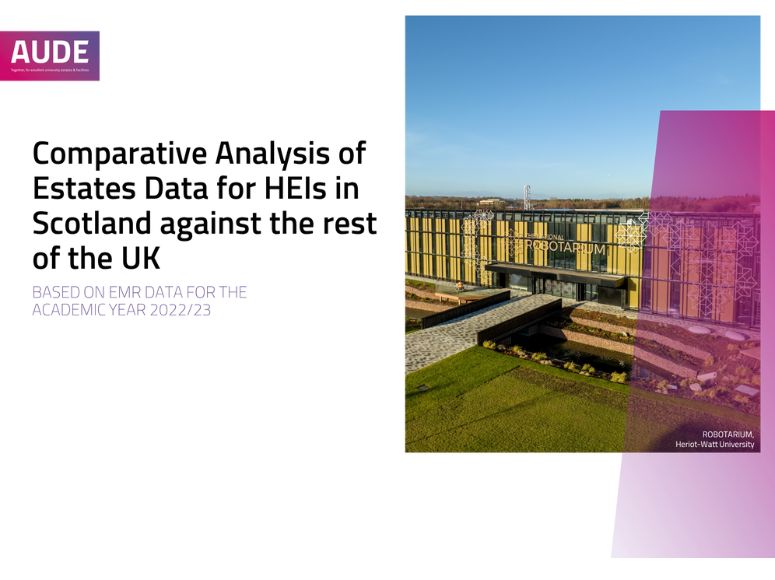
The intention of this research is to try to understand if there is any difference in the performance of the overall university estate in Scotland compared to England. It is supplementary and complementary to the Higher Education Estates Management Report.
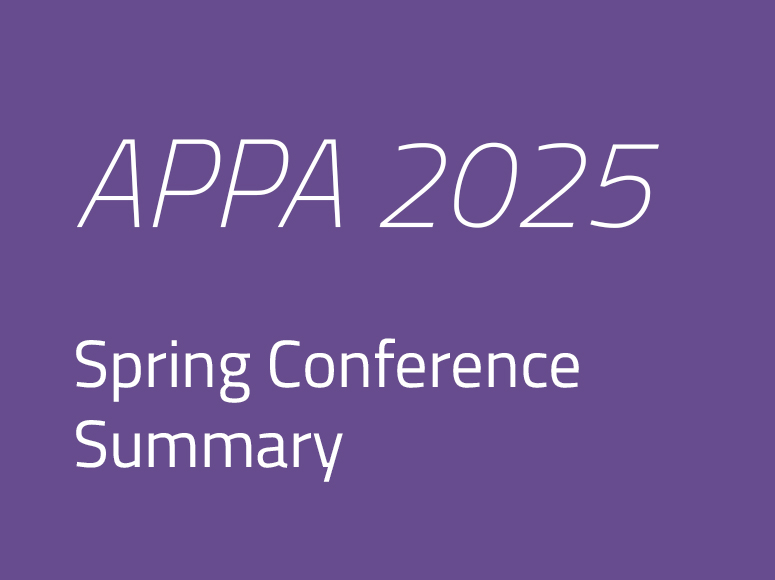
It is in the spirit of efficient shared learning that AUDE partners with comparable international groups so keenly, and we hope you are able to gain from this short report based on the AUDE Chair’s recent attendance at the APPA Spring Conference 2025, themed ‘Campuses of the Future’.
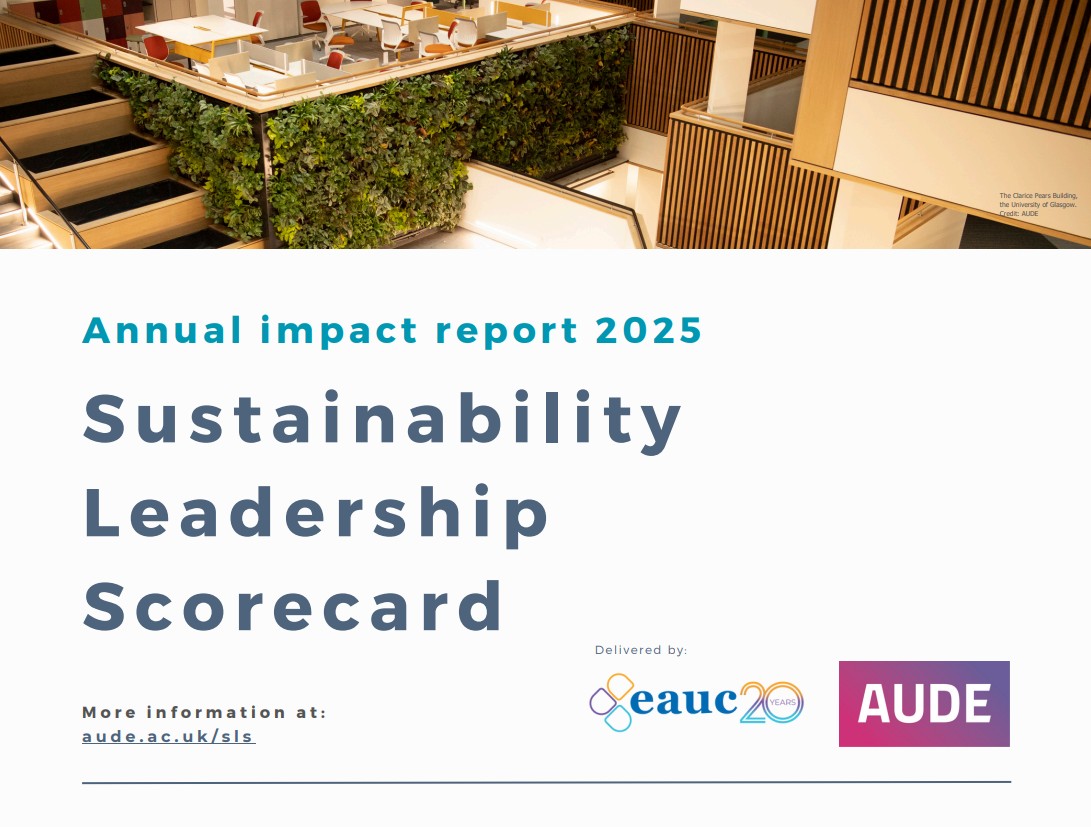
The 2025 Sustainability Leadership Scorecard Annual Impact Report is now available. Take a look at key insights and trends from our all-in-one digital tool that supports universities assess their sustainability performance and benchmark progress over time.
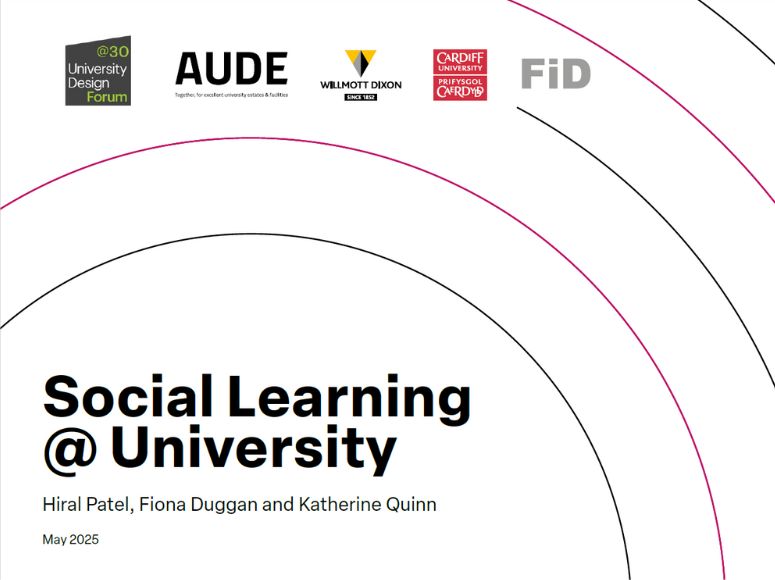
Download our report on social learning at university, a collaboration with AUDE, UDF, Willmott Dixon, Cardiff University and FiD. Social learning at university is a relationship-based learning process of bonding within communities, bridging between networks, and connecting with society and institutional structures in order to create value for self, others and the wider society.

Take a look at AUDE's highlights and achievements from the last 12 months.
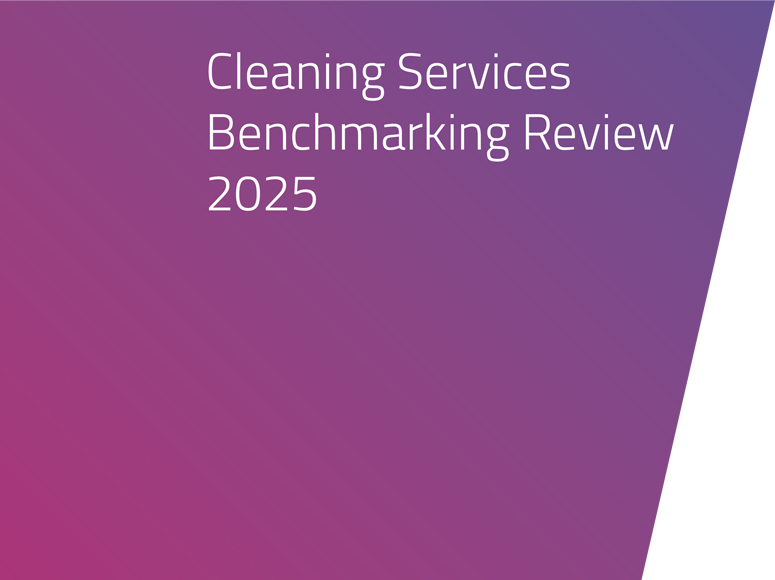
The review examines key aspects such as processes, people, buildings, environmental
and sustainability governance, and crucial financial data. By comparing insights from
outside the sector, we aim to provide valuable benchmarks against industry standards, helping to identify areas of excellence and those needing improvement.

A review of the Risk & Assurance Group workshop held in February 2025. This included:

The 5th template policy, created by AUDE's Strategic Facilities Management Group.
It should be adhered to and completed by contractors and agency staff. In-house staff should also familiarise themselves with all relevant sections of this manual, paying particular attention to the Health and Safety sections.
The manual details site rules, awareness and procedures that must be followed by everyone working on site or visiting.

This toolkit guide has been produced for use by AUDE member universities to support the improvement of new and existing estates.
AUDE advises that you watch the video on the Inclusive Environments page before reading the guide.
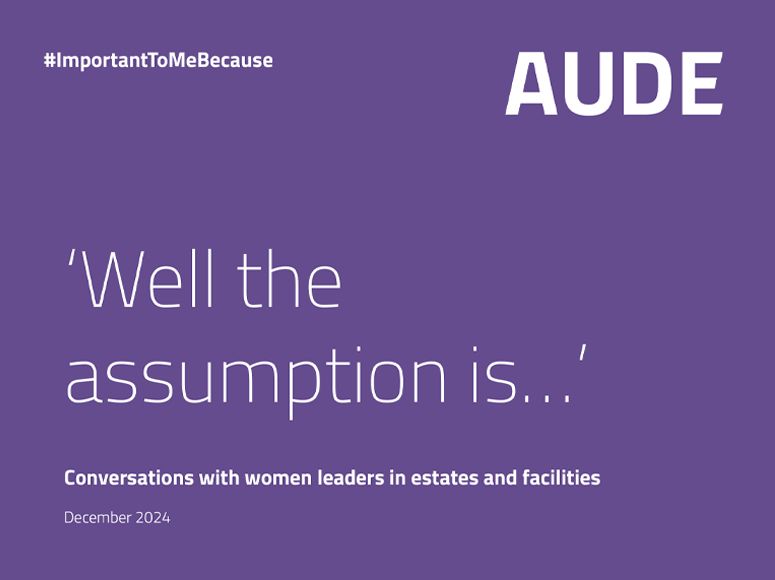
This is the result of conversations with female members of the association. It examines barriers to careers success for women, and is a strand of the work of the AUDE EDI Group. Our report participants consistently highlighted issues including invisibility of the career path; ‘casual sexism’ (anything but casual in its ability to undermine); unequal expectations placed upon women; and health, maternity and menopause.
Well the assumption is... Conversations with women leaders in estates and facilities

This is the 4th in a series of template policy documents designed by AUDE’s Strategic Facilities Management special interest group.
Contractors working for the University are required to conduct themselves and their work activities in a manner that ensures the health and safety of all employees and others who may be affected by their activities.

The latest of our template policies, created for us by our Strategic FM special interest group, is now available and covers driving safely on campus.
This policy template sets out a University’s position on driving safely on its campuses.
Driving is essential to the functioning of our Universities however it is potentially one of the most dangerous activities our employees undertake.

Including neurodiversity into the design of new and existing buildings is vital for a successful campus. This training video, provided by Buro Happold, provides advice and information about what neurodiversity is and how you should consider it when designing your campus.
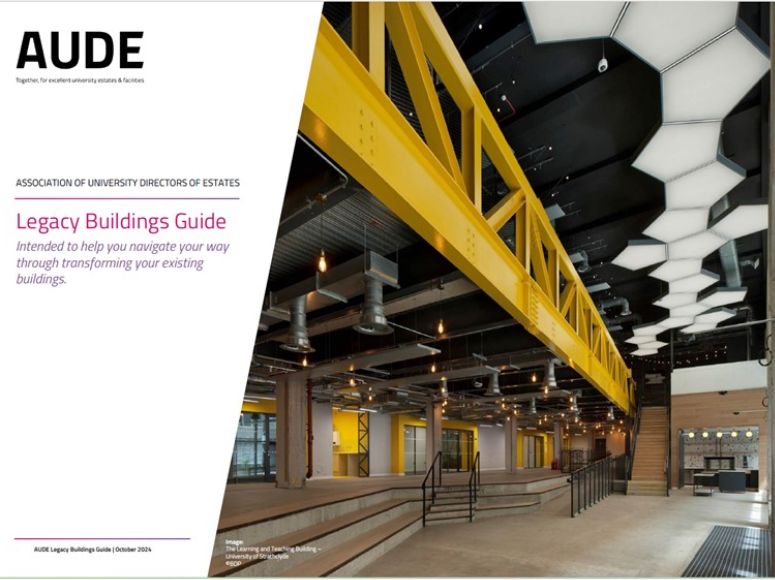
Whatever the era of our buildings we can be faced with a patchwork campus created using all kinds of technologies, including largely obsolete ones that don’t match up easily with the expectations of our staff and students today. Buildings of the last 30 years are now starting to be listed: this picture is a moving one.

This policy template sets out a University’s position on the use of e-scooters and e-bikes on its campuses.
The use of sustainable methods of travel are encouraged wherever possible by students, staff, tenants and visitors, whilst also ensuring that the safety and comfort of our community is fully considered.

A template policy for members to use to outline an approach to managing visitors coming to university premises and ensure they have safe and enjoyable visits in accordance with expectations of providing a safe, inclusive and welcoming environment for all.
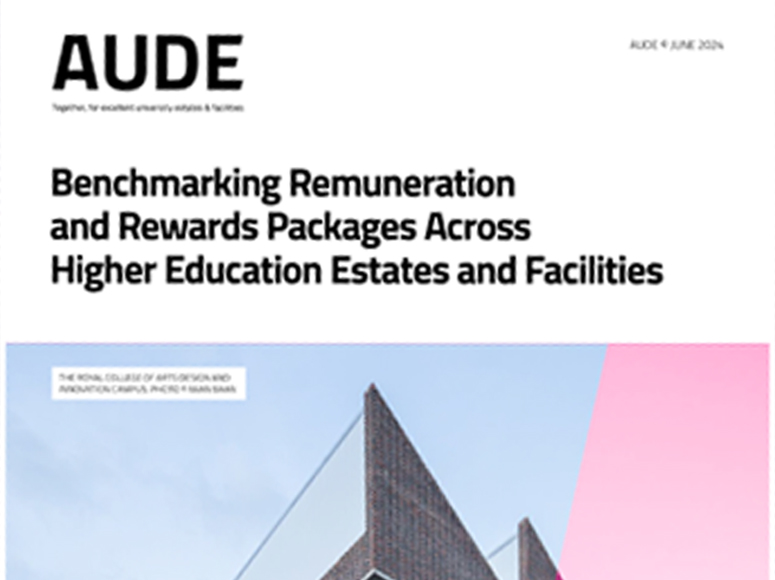
Following specific research for AUDE, this report will help members benchmark reward and renumeration packages across the sector, understand vacancy levels and develop a strategy to address recruitment challenges.
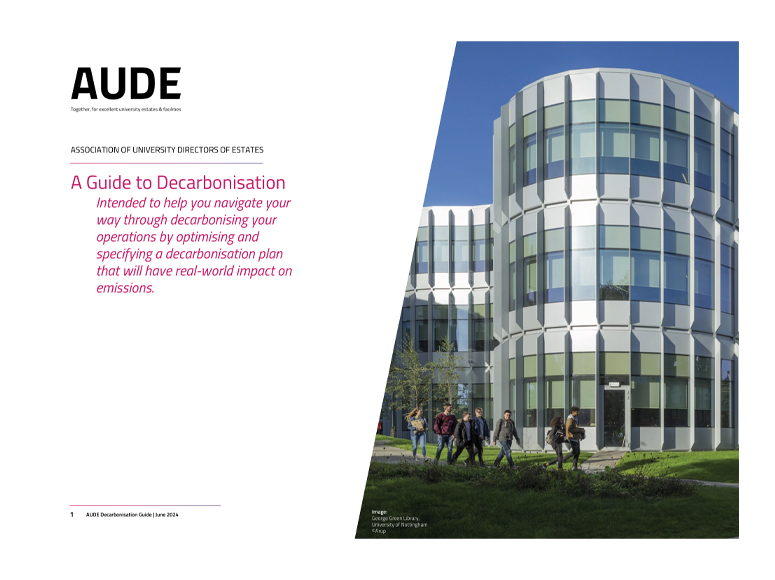
This guide will help you develop your decarbonisation plan. With practical advice, specifications and guidance it draws on the experience and expertise of our members and partners in supporting you in this fundamental activity.
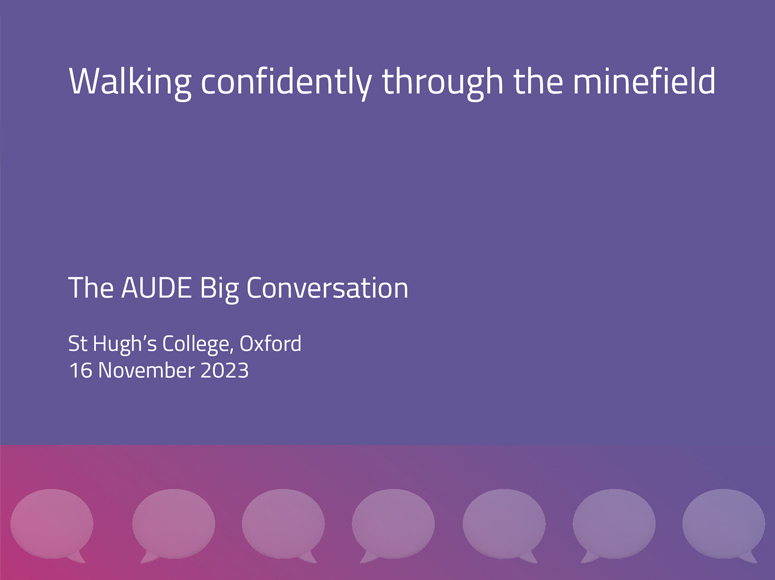
Read the review of our Big Conversation 2023 event, held on 15 and 16 November at the University of Oxford
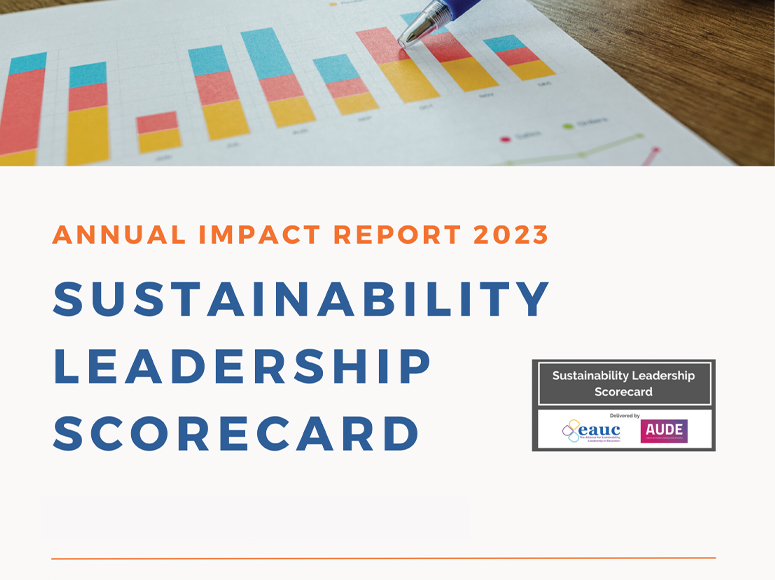
The 2023 Sustainability Leadership Scorecard Annual Impact Report is now available.
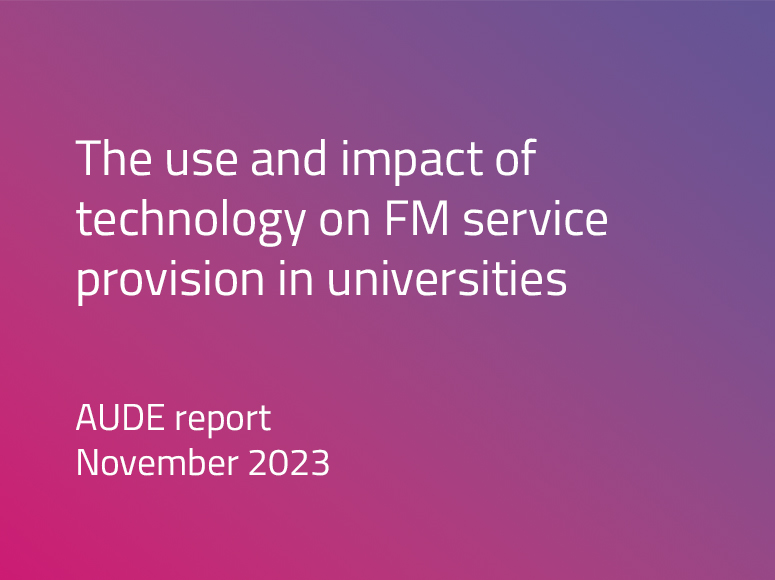
‘The use and impact of technology on FM service provision in universities’, is the report of the July 2023 roundtable discussion held with colleagues from our Strategic Facilities Management Group (led by Lucy Black of the University of Plymouth), and representatives from partner organisations including Sodexo, OCS and Skanska.
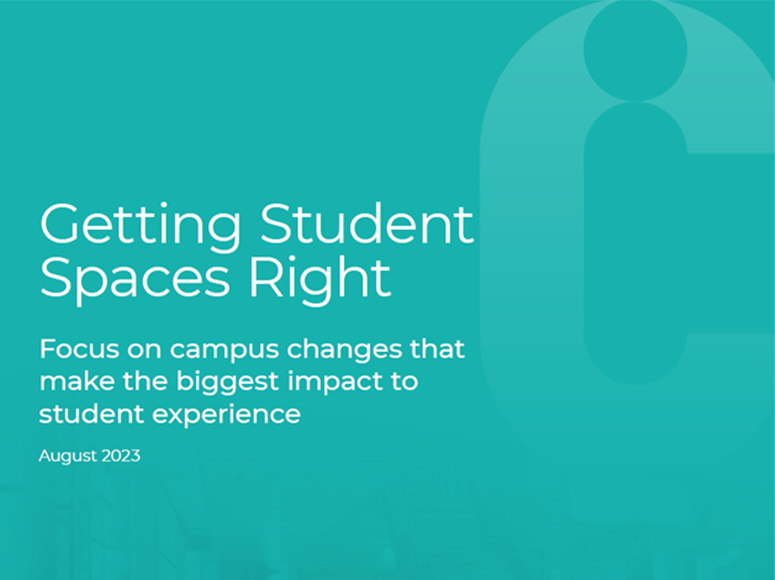
Focus on campus changes that
make the biggest impact to
student experience
August 2023
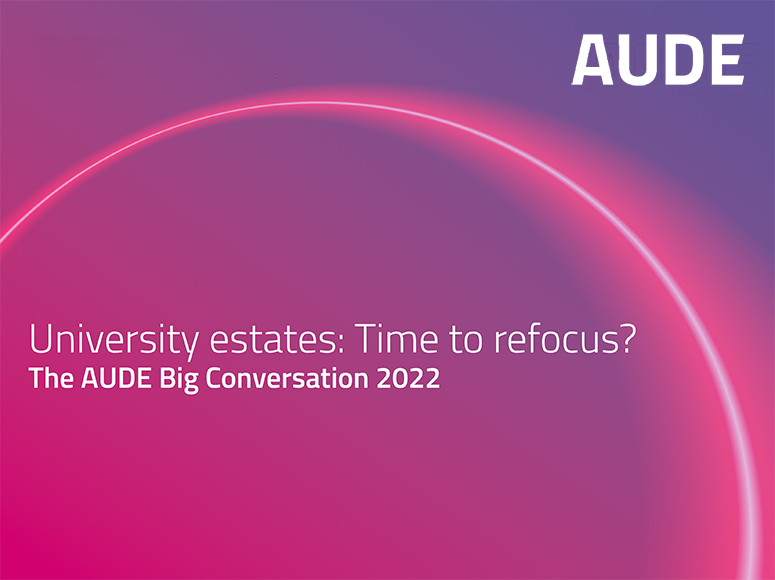
AUDE's 2022 Big Conversation event was held in October and November 2022 in both digital and in-person formats including at the University of Sheffield, and our theme was 'University estates: Time to refocus?' But what did our delegates, speakers, and panelists suggest we focus on after the huge disruption of the pandemic? Thank you so much to all of our participants.
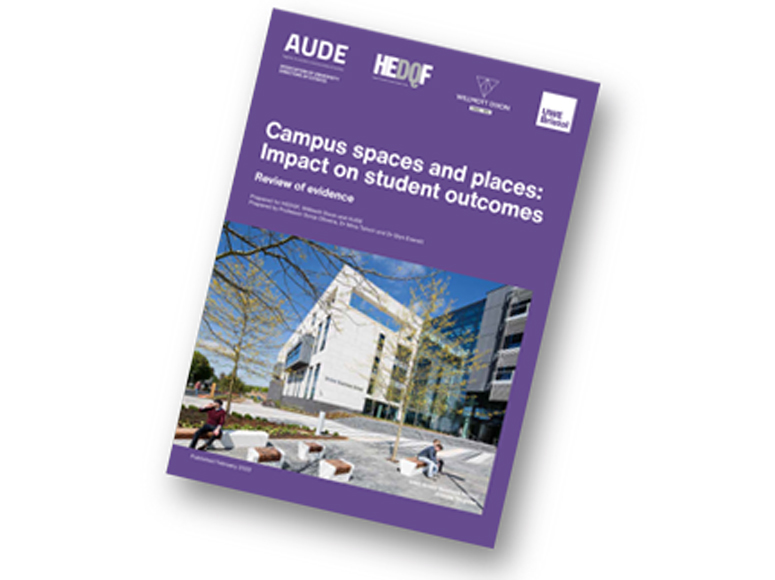
AUDE and HEDQF launch update report on its ongoing research into the impact of the built environment on student outcomes
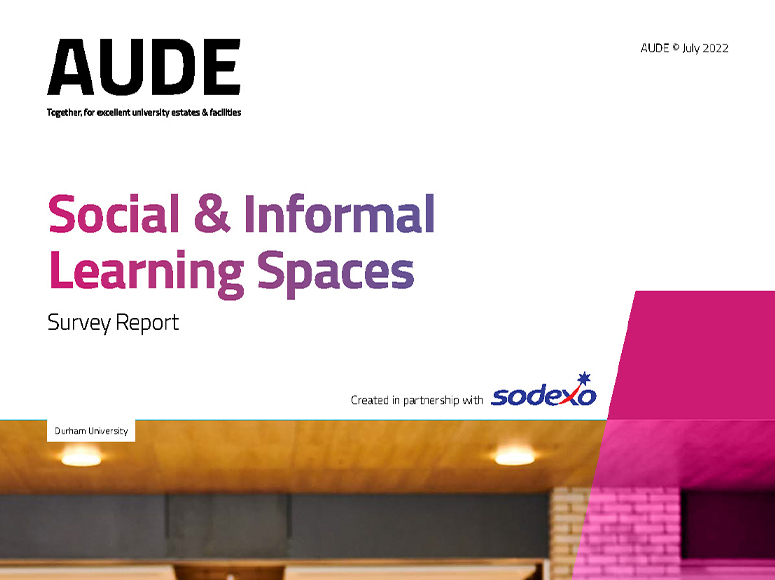
AUDE set the brief on managing social and informal learning spaces (S&ILS)
in the context of what AUDE’s members need to consider.
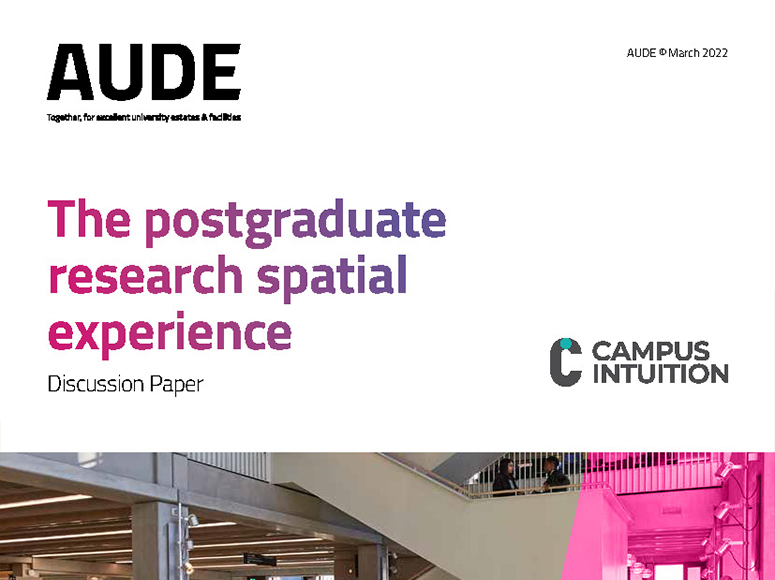
The AUDE Space Management Group publishes this discussion
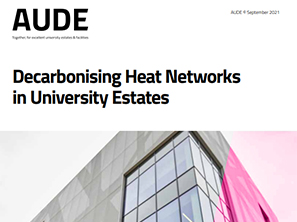
This report presents the results of a survey of University estates staff, carried out by the Association for Decentralised Energy, in co-operation with AUDE and the Scottish Association of University Directors of Estates (SAUDE), and a workshop to further explore and validate the
findings.
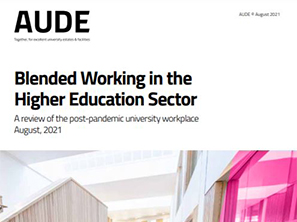
This report looks at the way the collective experience of working off-campus during the Covid-19 pandemic has changed attitudes, perceptions and habits in higher education across the world.
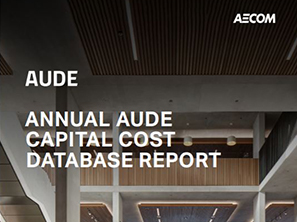
In the newly published AUDE Annual Capital Cost Database Report AUDE and partners AECOM have taken a look at the progress of the database during its first year in action.
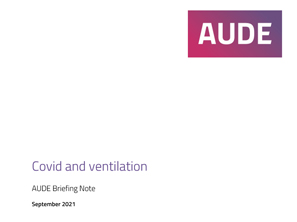
This AUDE Briefing Note does not attempt to act as “advice” on technical issues the detail of which is beyond our remit. But we are aiming to help AUDE directors of estates/members to think through the issues raised.
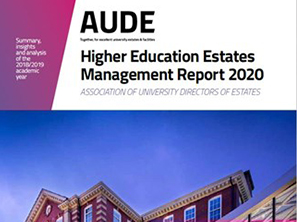
Our annual estates management report (EMR) work underpins the strategic decisions made in estates teams in universities across the country. It represents the hard facts and accurate data for big choices in estates management and future investment.
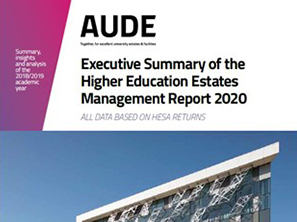
Our annual estates management report (EMR) work underpins the strategic decisions made in estates teams in universities across the country. It represents the hard facts and accurate data for big choices in estates management and future investment.
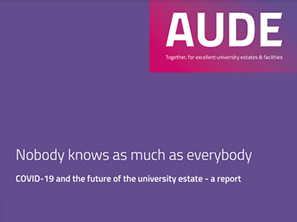
Nobody knows as much as everybody. COVID-19 and the future of the university estate - a report.
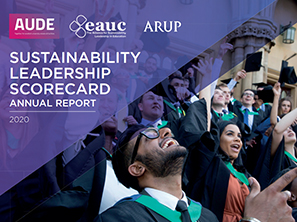
The sector has a transformational ‘All in One’ tool, which captures data and performance from many sources and builds one definitive picture of an institution’s performance.

In this report we will consider both our morning and afternoon plenaries, and the lessons we can take home from them. I am very grateful indeed to all who joined us on 7 February in Hull - our speakers and guests, our sponsors ENGIE and exhibitors.

We're moving at different speeds in our understanding of where digital technologies are taking us - as individuals, as estates teams, as universities. Fears, concerns and misunderstandings are inevitable, but delegates at the event will be sure that the opportunities are huge too.
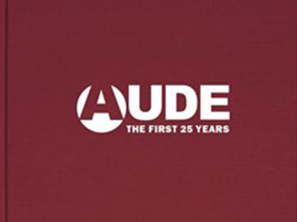
A unique publication celebrating 25 years of AUDE which features contributions from 100 UK higher education institutions, ten guest essays from senior estates professionals and a foreword from the association's founding chairs.
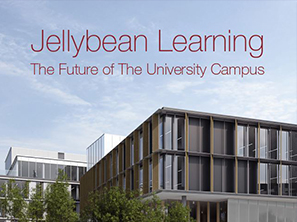
Analysing data from across the sector, AUDE has produced a report looking at how universities need to develop to meet the needs of Generation Z.
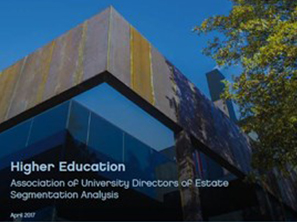
Whilst the AUDE annual report looks at universities as a whole, there has been a view within the sector that individual institutions need to compare themselves against a more appropriate set of institutions which share a number of key characteristics.